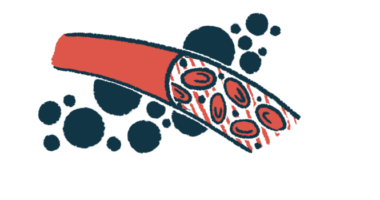IPAH Patients’ Survival Rates Higher When Treated With Targeted Therapies

 A new study entitled “Improved survival of Korean patients with idiopathic pulmonary arterial hypertension after the introduction of targeted therapies” published in August issue of the Heart & Lung journal reports targeted therapies for treatment of idiopathic pulmonary arterial hypertension (IPAH) significantly improve IPAH patients’ survival.
A new study entitled “Improved survival of Korean patients with idiopathic pulmonary arterial hypertension after the introduction of targeted therapies” published in August issue of the Heart & Lung journal reports targeted therapies for treatment of idiopathic pulmonary arterial hypertension (IPAH) significantly improve IPAH patients’ survival.
IPAH is a serious condition characterized by increased blood pressure in pulmonary arteries, frequently culminating in heart failure. Despite several approved treatments, IPAH currently has no cure, and treatments tend to treat symptoms of the disease rather than the underlying cause. Previously, IPAH conventional treatments included oxygen supplementation to fight the lack of oxygen due to pulmonary vaso constriction, anticoagulants to prevent vascular thrombosis
associated with IPAH, as well as digoxin and diuretics. However, data concerning survival rates among IPAH patients who are prescribed these treatments are lacking in the research community. Novel treatment strategies — targeted therapies such as prostanoids, endothelia receptor antagonists, and phosphodiesterase type 5 inhibitors — have also not been fully studied.
[adrotate group=”4″]
To evaluate the benefits of targeted therapies, the authors analyzed conventional and targeted
therapies in IPAH patients’ survival in Korea, since most of the previous randomized studies involved subjects from Western populations.
The team performed a retrospective study of 71 IPAH patients, 50 of which were women, between 1994 and 2013, with a group receiving conventional treatment and a second group treated with
targeted therapies alone or co-treated with conventional therapy. The results showed a significant increase in survival rates in the therapy-targeted group when compared to conventional treatments. Specifically, in the first year of treatment targeted,
therapies resulted in a 92.3% survival rate compared to 72.9% with conventional therapy. Even after 10 years, survival rates were 42.9% versus 22.0%, respectively.
[adrotate group=”3″]
Jae Seung Lee and colleagues from the University of Ulsan College of Medicine in Seoul, South Korea commented, “We believe targeted therapies would improve survival benefits in IPAH patients. Further well-conducted, randomized controlled studies are necessary to evaluate the efficacy of targeted therapies.”







